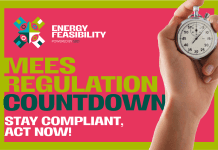The public is becoming more aware of how their everyday habits contribute to serious drain and sewer blockages – but more needs to be done to actually address the problem, argues Michelle Ringland from Lanes Group
In the last few years, the British public has been rapidly awakening to the significant threat that fatbergs and poor waste disposal habits pose to the UK’s natural and built environments.
As global green movements have emphasised the problems that single-use plastics and non-biodegradable products can cause for oceans and waterways, so too have recent utility sector campaigns helped to underline the costly damage suffered by the UK’s pipes and sewer network due to people putting the wrong items down the drain.
A recent survey carried out by Lanes Group, the UK’s leading privately owned specialist drainage contractor, has offered evidence that these campaigns and education efforts are proving effective in raising awareness of the problem. However, the results also indicate that more needs to be done before this awareness can be translated into meaningful action.
A growing understanding of fatbergs and hidden plastics
The latest Lanes survey came as part of a regular series of polls to shed light on awareness levels among Britons of how their household habits affect the health of the national drainage network and wider environment. The 2019 survey included 1,216 participants, and revealed a general improvement in public understanding of many of the factors that cause drainage-related problems.
For example, it was shown that 77% of respondents said they have heard of fatbergs, the congealed masses of fat, oil, grease and non-biodegradable products that form impenetrable blockages in the UK’s sewers. This was up from 61% in 2018 and 47% in 2017.
Until a few years ago, fatbergs were not a widely recognised concept among the general public, but high-profile incidents such as Lanes’ removal of the monster 130-tonne Whitechapel fatberg in 2017 are helping to draw attention to the seriousness of this issue. Indeed, 39% of those polled said they had heard about fatbergs through the national news media, while 13% had seen TV shows dedicated to the phenomenon, showing the value that such coverage can have in terms of public education.
The 2019 survey also indicated that more people are starting to understand that certain household products contain “hidden” plastic content that may not be obvious to the naked eye, but nevertheless make these items hard or impossible to break down when they are flushed into the drains. Nearly 62% of those polled said they understood that wet wipes contain hidden plastic content, despite the fact that many of these products are erroneously labelled as “flushable”.
Additionally, respondents to the survey showed a generally strong understanding of the problems that fatbergs can cause, including drain blockages, water pollution, foul waste flooding and infrastructure damage.
Bad habits still persist
However, our survey findings indicated that this improved awareness is not always translating into meaningful action, or bringing an end to the bad habits that contribute to the formation of fatbergs and other stubborn blockages.
Notably, 48% of those polled said they have poured oil and fat down their kitchen sink – a figure that was slightly higher than the 47% recorded in 2017 and 2018, despite the fact that more people now understand how harmful this is.
The items people most commonly admitted to having flushed down the toilet were flushable wet wipes, kitchen roll and tampons. More than half – 55% – said they had flushed some form of wet wipe, and 34% had flushed a tampon. Among female respondents, these figures rose to 58% and 46% respectively, while 20% of men said they have flushed a condom down the toilet.
In spite of the broad improvements in public awareness of proper disposal practices, some of these persistently damaging habits can be attributed to an ongoing lack of education. For example, 85% of those surveyed had never heard of concretebergs – a type of blockage formed by building materials and cement – and 63% had no understanding of how to properly dispose of cement.
Moreover, few of those polled were able to specifically identify contact lenses, razor blades or improperly flushed medical products as potential contributors to fatbergs, further underlining the fact that crucial gaps in public understanding still exist.
What could help to create lasting change?
Although the latest Lanes survey highlights significant room for improvement on this important issue, it also shed light on a few potential ways in which these changes could be achieved.
For example, around two-thirds of respondents said programmes to teach primary and secondary school pupils about proper waste disposal – such as Lanes’ Fatberg Fighters scheme – would be a good way of preventing pollution and drain blockages. Others suggested approaches such as better access to recycling services, fines for improper disposal and clearer information on product packaging.
The role of TV programmes like the BBC’s Blue Planet II, which highlighted the impact of plastic pollution, was also emphasised. Some 52% of those polled said there should be more TV shows like this and of the 40% of respondents who watched the documentary, 57% have reduced the number of plastic bags they use and 52% now recycle more often.
Additionally, 66% of respondents showed a willingness to take part in a month-long challenge to tackle their bad waste disposal habits. This is the exact objective of Unblocktober, [Link – www.unblocktober.org] a nationwide awareness month that Lanes will launch in October 2019, challenging individuals and businesses across the country to change their behaviour with a series of simple pledges to help protect our sewers and seas from fatbergs and plastic.
Clearly, the findings of our 2019 survey show that progress still needs to be made before these issues with the UK’s drainage infrastructure can be overcome – but with the understanding and support of the British public, it remains an achievable goal.
Michelle Ringland
Head of Marketing
Lanes for Drains
Tel: +44 (0)113 385 8400
Twitter: @LanesForDrains
Facebook: Lanes For Drains














